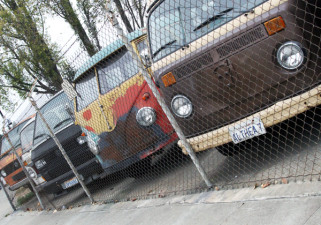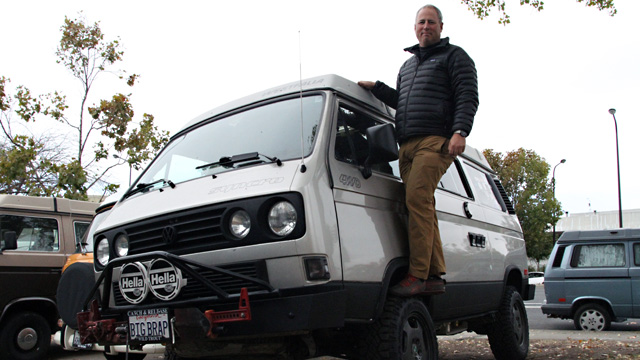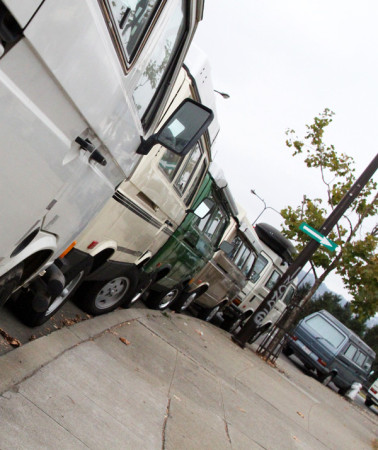http://www.kqed.org/.stream/anon/radio/tcrmag/2014/07/2014-07-25e-tcrmag.mp3
If you're road-tripping through California this summer, you might spot the occasional Volkswagen Bus. Back in its heyday, in the 1960s and '70s, this portable camper was everywhere. Fewer ply the roads today, but devotees invest time and money to keep their VW Buses alive and ticking. In Berkeley, there’s a place that focuses on getting them road-ready again. It's called the Buslab.
“Here at the Buslab we're also known as the guys to call you and tell you it’s gonna cost a million dollars to fix your car,” jokes Buslab employee Sean Roberts.
He’s had a passion for VWs for 25 years. “Dude! I have so much fun,” he exclaims. "None of my cars have radios. So I listen to the engine. I listen to the wind. I listen to the road. I kinda go off to my own little world and just be me.”
Fans like Roberts say the Volkswagen Bus isn’t your average car, citing its roundish curves, spacious interior and cool vibe.

The story behind the invention of the VW Bus goes something like this: One day in 1947, a Volkswagen salesman by the name of Ben Pon walked into the Volkswagen factory in Germany. He noticed a customized Bug with the driver’s seat in the back and a flatbed in the front to move parts around the factory. At that moment, a light bulb went off in Pon’s head. He sketched out the Volkswagen Bus.


